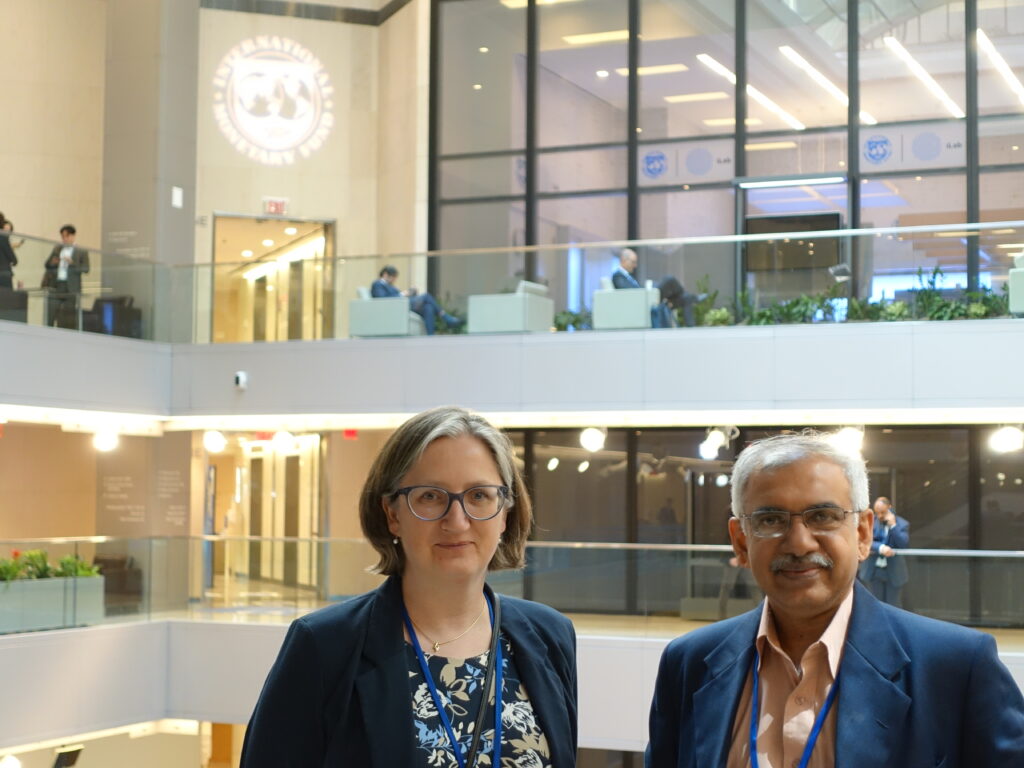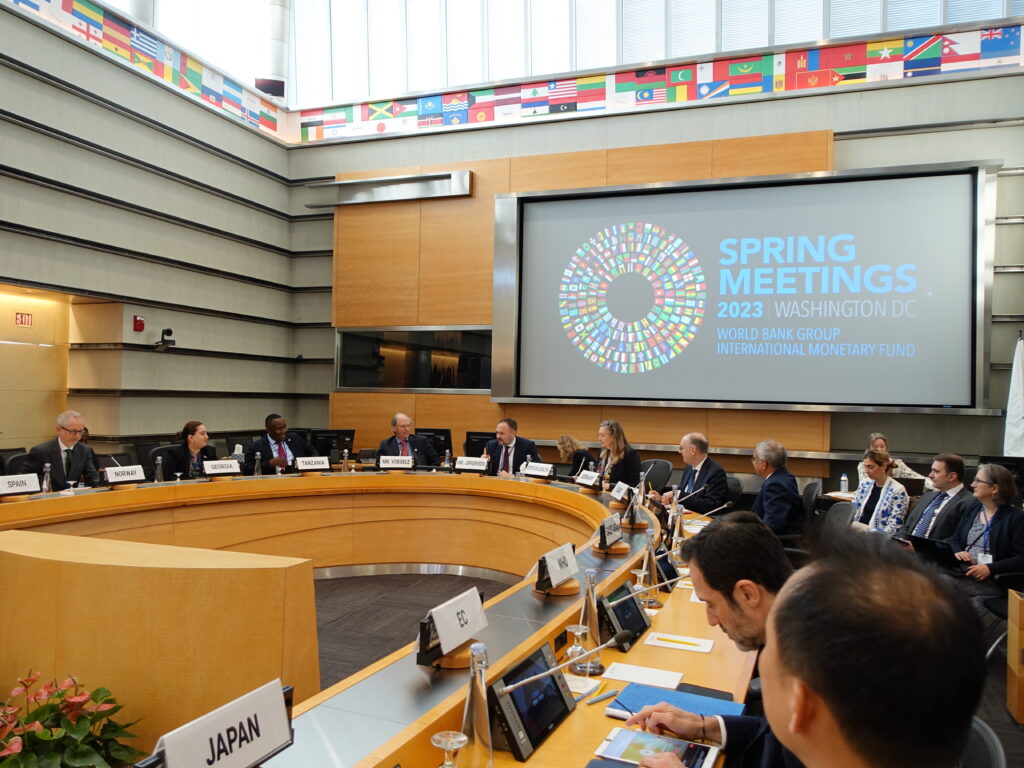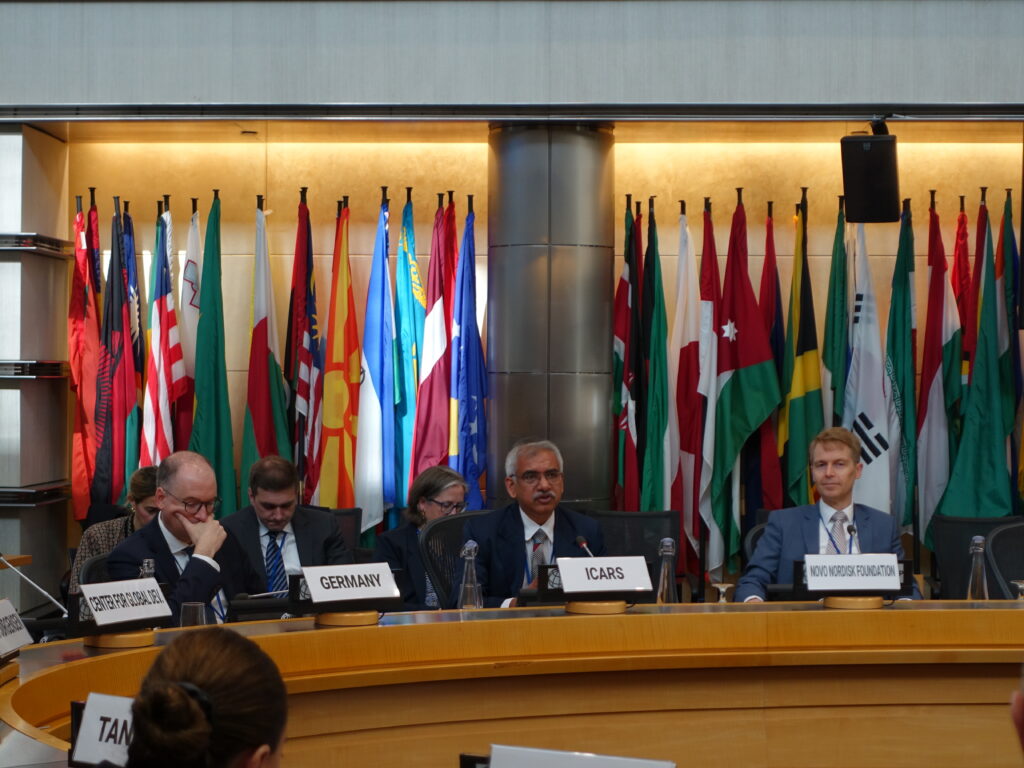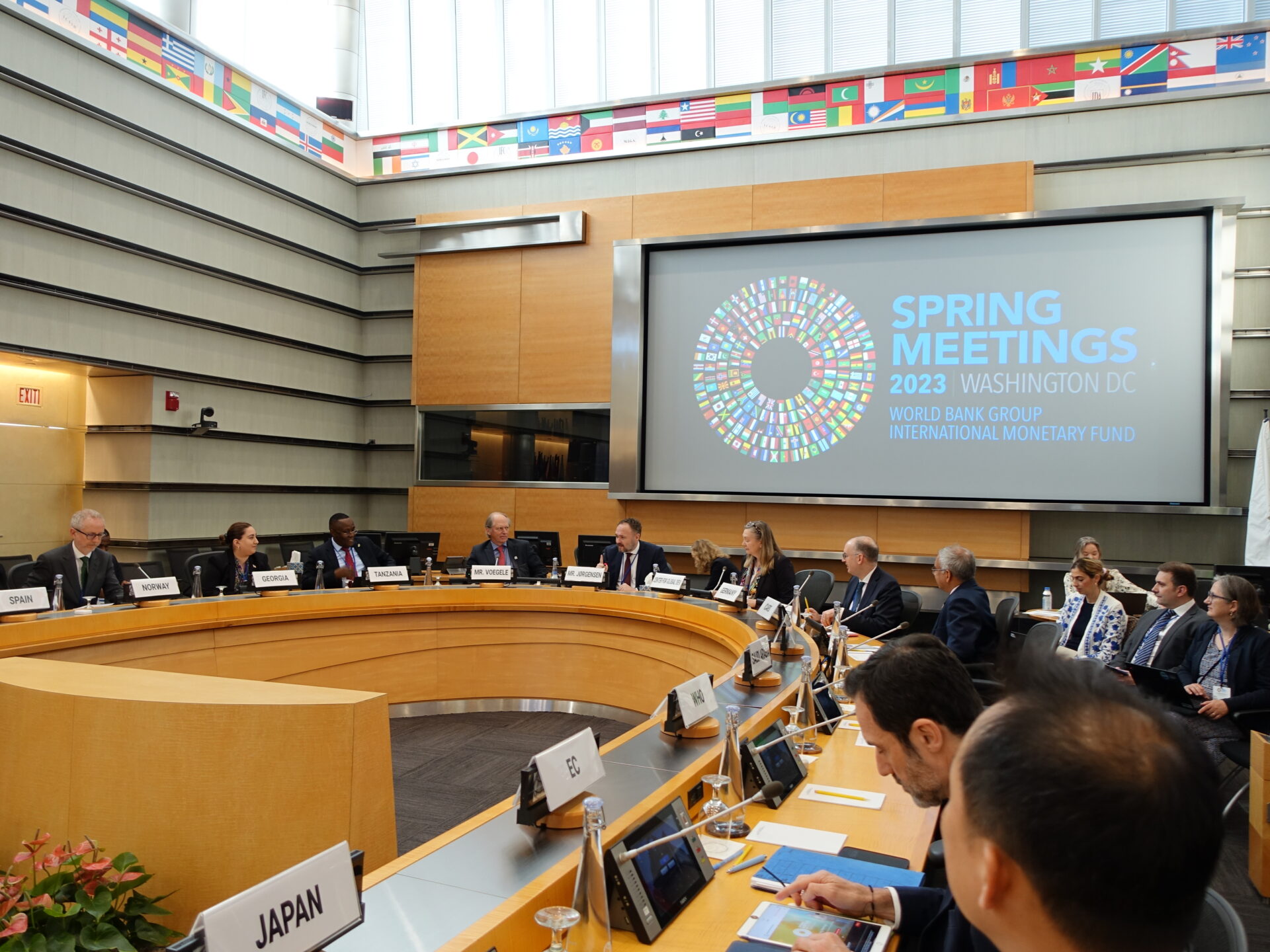On Friday 14th April 2023, ICARS attended the World Bank Spring Meetings in Washington DC to participate in a high-level ministerial roundtable hosted by the Minister for Development Cooperation and Global Climate Policy of Denmark, Dan Jørgensen. The event was entitled ‘Accelerating One Health solutions to combat the “silent pandemic” of antimicrobial resistance (AMR) to promote better human, animal and environmental health and achieve the Sustainable Development Goals’. The event brought together ministers, senior-level government officials, philanthropic foundations, and representatives from the World Bank and the UN Quadripartite to share their experiences and challenges of addressing AMR at the national and global level.

To open the event, Dan Jørgensen, Danish Minister for Development Cooperation and Global Climate Policy spoke about the unequal burden of AMR and the ways in which climate and health are interlinked:
“Climate change, sustainable development and health are interlinked. Extreme weather – droughts, floods, and heat waves – disrupt conditions of life for communities and families and has severe health impacts. When we fight AMR, this connection makes sense, for example, when we adapt societies to climate change, we should include measures against AMR. ICARS’ projects show that it is possible to reduce the threat from AMR and at the same time achieve more sustainable development, higher food security and stronger health systems. I invite more donors and implementing countries to partner with ICARS and join our efforts to fight AMR.”

In his keynote speech, Juergen Voegele, Vice President for Sustainable Development at the World Bank, emphasised the urgency of the AMR problem and commended the work of ICARS generating sustainable and effective solutions to tackle it:
“For almost 20 years the World Bank has been working in the AMR space and been aware of a critical gap – pharmaceutical companies around the world working hard to produce new antibiotics are not keeping pace with what is being lost to antimicrobial resistance. We recognised the need for a research facility that investigates the most effective AMR interventions to prioritise and finance – and welcome the ongoing work of ICARS to tackle this deadly pandemic. Denmark saw the need, funded ICARS, and now the organisation is rapidly growing – if you haven’t already, everyone should connect with and support the important work of ICARS.”
Dr Sujith J Chandy, ICARS’ Executive Director joined the roundtable stressing the cross-sectoral threat that AMR poses:
“AMR is not just a microbiological problem, but a socio-economic problem that impacts many aspects of our lives. And because AMR hits the world’s vulnerable populations harder and has massive financial implications, it is not just a global health challenge but also a global development issue.”

In alignment with the Minister’s speech, Sujith emphasised the need to integrate global challenges such as AMR and climate change with sustainable One Health solutions and provided recommendations for future action. Drawing on ICARS’ experience working with Low-and Middle-Income Countries, he highlighted the important role that evidence can play in developing business cases that enable countries to prioritise effective AMR solutions.
By bringing together key actors in person, the event facilitated an open exchange on experiences and strategies for prioritising AMR. Discussions from the event will be compiled into a report that will feed into international discussions leading up to the UNGA 2023 high-level meetings on Pandemic Prevention, Preparedness and Response on Universal Health Coverage, as well as the UNGA 2024 High-Level Meeting on AMR.

